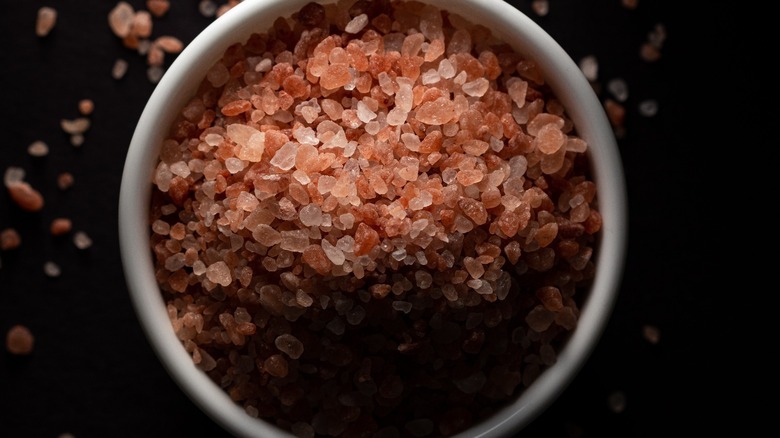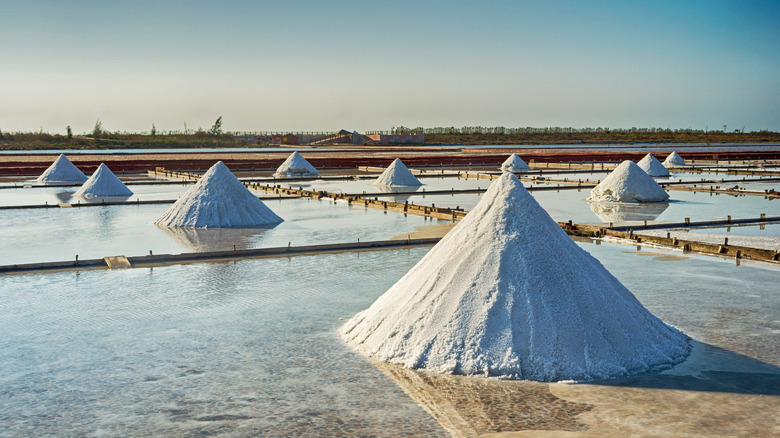'Sea Salt' Doesn't Always Mean What You Think
For something as basic and essential as salt, there's actually quite a lot of variety out there. In addition to regular old table salt, these days you have Himalayan salt, kosher salt, rock salt, and a seemingly endless variety of sea salt. But wait a minute, doesn't all salt come from the sea ultimately? Why is there a distinction for sea salt? And does it even have to come from the sea? The answers to those questions may surprise you.
According to The Kitchn, all salt came from the sea originally. The difference is that table salt is mined from salt deposits left by ancient bodies of seawater that no longer exist, while sea salt is made from a current body of seawater, using either solar or vacuum evaporation. Table salt has also been processed to remove any trace minerals, and has an anti-caking agent, and often iodine, added. Meanwhile, sea salt, at least the unrefined kind, has been minimally processed, and still contains different minerals — a big reason why many people consider sea salt to be healthier than table salt (via Healthline).
'Sea salt' may not actually come from evaporated seawater
According to Robert L. Wolke's book, "What Einstein Told His Cook: Kitchen Science Explained" (as discussed in Mental Floss), although the Food and Drug Administration has regulations on what can be labeled sea salt, their focus is on the purity of the salt, versus its actual origins or means of production. Table salt contains additives such as anti-caking agents, while sea salt does not. So long as the 'sea salt' in question is free of such additives, and thus pure enough, it can be called sea salt — the FDA doesn't require any proof that the sea salt was evaporated from sea water at the time of its sourcing.
So the next time you're contemplating paying a premium price for a gourmet bottle of sea salt, just be aware that the salt may not have been harvested from the sea, at least not recently. That said, the reason many people prefer sea salt is for its varied mineral content, more complex flavor, and wider variety of texture from fine to coarse, which makes it preferable for certain cooking situations (via MasterClass). So long as that still rings true, where that salt actually came from may not matter so much in the end.

